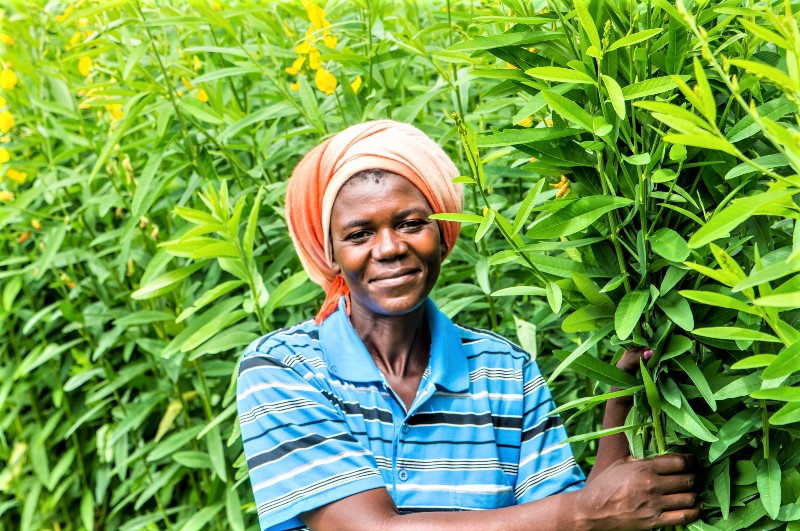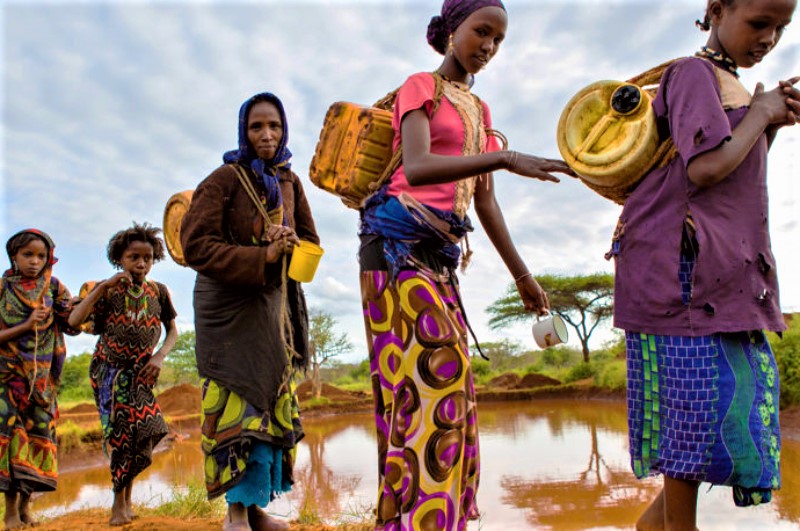

"The urgent challenge to protect our common home includes a concern to bring the whole human family together to seek a sustainable and integral development, for we know that things can change.” – Pope Francis, Laudato Si'
The Jesuit Justice and Ecology Network in Africa (JENA) has been at the forefront of advocating for climate justice, and climate action in response to Pope Francis’ Laudato Si' encyclical on Care of Creation. Recently JENA has participated in the Stockholm+50 and held a climate advocacy workshop in preparation for COP27 which will be held in Egypt.
In his encyclical Laudato Si' on Care for Our Common Home, Pope Francis identifies pressing modern ecological challenges. Regarding climate change, the Pope emphasises that “the climate is a common good, belonging to all and meant for all.” He also stresses that “climate change is a global problem with grave implications, the poor who are least responsible for causing the problem are disproportionately vulnerable to its harmful effects."
The international meeting held in Stockholm, Sweden from 2-3 June 2022 under the theme, “a healthy planet for the prosperity of all – our responsibility, our opportunity” was seen as a commemoration of the 1972 United Nations Conference on the Human Environment, marking 50 years of global action. The Stockholm+50, hosted in Sweden with the support of Kenya, was held within the same week as World Environment Day, which is held on 5 June each year, a result of the 1972 event. The 1972 conference was the first world conference to make the environment among the list of global priorities highlighting it as an area of concern and urgency. 122 countries attended, the outcome being the adoption of a series of principles on the environment including the Stockholm Declaration and Action Plan for the Human Environment.
At the Stockholm+50 international meeting, JENA was represented by Fr. Charles Chilufya, SJ, the Director and Bryan Galligan, SJ, research, and policy analyst, on Food and Climate Justice.
Speaking ahead of the international meeting Fr. Chilufya, pointed out that the international meeting needed to initiate collective action on issues around the environment despite the already existing efforts made as the world races towards net-zero. “What is needed and what Stockholm+50 should usher in is more serious collective action supported by greater commitment to multilateralism that takes seriously the inclusion of voices that need to be included especially those of the youth, women, and indigenous voices,” Fr. Chilufya, said, during an interview with ACI Africa.
Looking back to the first UN conference on the environment which was the beginning of a dialogue between industrialised and developing countries on the inextricable link between economic growth, the pollution of the air, water, and oceans, and the well-being of people around the world, the world now faces a triple planetary crisis of climate change, pollution, and waste, nature, and biodiversity loss, as well as other planetary ills that are affecting current and future prosperity and wellbeing. An unhealthy planet threatens human health, prosperity, equality, and peace – as the world has seen only too clearly in COVID-19. It also threatens the achievement of the Sustainable Development Goals, (UNEP, 2022). This international meeting, therefore, was collaborative and multi-sector in nature allowing invited participants to share experiences and initiatives to protect the planet and contribute to sustainable and inclusive development, including a sustainable recovery from the COVID -19 pandemic. According to the UN, Stockholm+50 provided global leaders “with an opportunity to draw on 50 years of multilateral environmental action to achieve the bold and urgent action needed to secure a better future on a healthy planet.”
In an interview with ACI Africa, Fr. Charles said, “the international meeting offered opportunities to cooperate, to make peace with nature, rebuild trust, a chance to push the boundaries to achieve justice and to change our energy and financial systems so that we do not compromise the capacity of future generations to imagine and direct their own development.” Though there have been good efforts made on the environment, there is still a long way to go. “What we need is to usher in true transformation, responsibility, stewardship, and care." He added that, “To heal and protect life and our planet are good hearts full of care, concern, and compassion for the earth and for future generations.” Fr. Chilufya also pointed out that the values, which are grown and natured in human hearts “must find their way into policy making and implementation, investment decisions and in the building of economies; economies with a soul.” Fr. Charles does indeed affirm Pope Francis’ message in the encyclical Laudato Si' in which the Pope recognises “an urgent need to develop policies so that, in the next few years, the emission of carbon dioxide and other highly polluting gases can be drastically reduced."
“We need humanity, ubuntu!” - Fr. Chilufya.
Related Articles
Select Payment Method
Pay by bank transfer
If you wish to make a donation by direct bank transfer please contact Fr Paul Hamill SJ treasurer@jesuits.africa. Fr Paul will get in touch with you about the best method of transfer for you and share account details with you. Donations can be one-off gifts or of any frequency; for example, you might wish to become a regular monthly donor of small amounts; that sort of reliable income can allow for very welcome forward planning in the development of the Society’s works in Africa and Madagascar.
Often it is easier to send a donation to an office within your own country and Fr Paul can advise on how that might be done. In some countries this kind of giving can also be recognised for tax relief and the necessary receipts will be issued.


